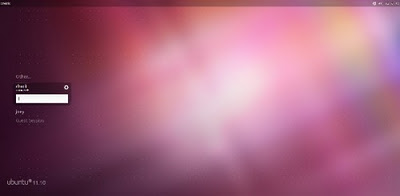Freedom of expression takes a new
dimension altogether when placed in the context of the digital
channels like blogs, social networks or microblogs in the Internet.
While there is no absolutism associated with any freedom, the
applicability or the non applicability of restrictions and laws
between the real world and the digital space needs clear
understanding and a distinction based on this understanding.
The stand of Free Software Movement, has always been to sustain and perpetuate the freedom of computer users and information
technology benefactors. When the Government of India today has
proposed severe but unsubstantiated endorsement of censorship,
leading to the curbing of fundamental rights of expression, we
would want to reiterate our stand to Free Software supporters by presenting the
the threat this move would pose to the essence of neutrality in the
Internet and democracy in the country.
Expressing oneself in the conventional
media like press, books, television and radio are entirely different,
than when an individual is expressing via digital vents on the
Internet. The accessibility to the media itself, and the broadcast
range of the channels in both the realms are fundamentally different.
In conventional media, not everyone has
a say, and the chances of rebutting to the opinions of the 'media
privileged' people expressing them is seriously restricted; In the
Internet it is quite the opposite. By design the Internet provides
equal footing to everyone to express their own views. Anyone can
express their views, or counter an expressed view without having to
depend on 'media partners' to attach a voice to their opinions.
Hence, it could be said that the Internet is self conditioned, and
does not require external regulators.
Secondly, the views presented in
newspapers, books and television, or any other form of conventional
media are in a sense 'imposed', wherein except from unsubscribing to
those services there is little of resentment one can demonstrate.
Moreover the conventional media vents have percolated deep into the
society in a country like India, where it is not the Internet but
newspapers and television which build opinions of people. In
contrast, the content put up on the Internet operates and caters to a
relatively small portion of the population. The sensibilities of the
information on the Internet makes sense to the communities of people
on that particular service or platform alone, and does not spill over
to the streets. It is the user who seeks content on the Interent and
nothing is imposed, in comparison with the conventional media.
Further the current stand of the
Government to curb and hone down the views expressed on the Internet
comes as a shock. Authorities headed by Mr Kapil Sibal, whose lack of comprehension of the problem at hand
is being debated heavily on all platforms, well beyond the online
platforms.
 |
| http://www.labnol.org/india/censorship-in-india/20527/ |
It seems he has suddenly gotten aware of the censorship trick. Mr.
Sibal and the rest of the Government have been projecting that
“religious blasphemy” is what they are trying to counter in the
Internet – which is far from the whole truth.
There has been a lot of active
propaganda on the net about the plethora of scams that the current
UPA Government has been involved in. The facts being circulated might
not be audited, and very just but the essence these streams online
have been carrying have certainly put the Government at guard and now
are using a masquerade of “religious blasphemy” to curb the
freedom of expression in the Internet.
The extreme interest Mr. Sibal has been
taking in this regard comes as a bigger surprise, for, the issues
pertaining to the infrastructural problems of e-Governance in India,
the security issues related to the Aadhaar Unique Identification
project and the secretive NATGRID are not being given the same
importance. These issues about Internet and technology which have
been growing steadily for sometime now have to be addressed firstly,
which neither Mr. Sibal nor his instigators have bothered about.
The enthusiastic involvement which Mr.
Sibal, representing the Government of India has demonstrated, to curb
the freedom of expression in the digital sphere manifests the
unreasonable apprehensions of our current governors. If implemented,
this censorship would beyond curbing the freedom of expression,
cripple the democracy, or the little of it which remains.
Free Software Movement with this clear understanding, urges Internet users and activists to take up online campaigns, propagate the nuances of the issue at hand and stand up for the freedom in the Internet.





































